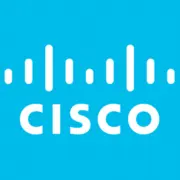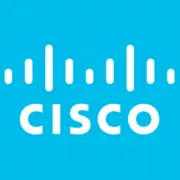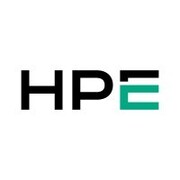
Best Data Center Networking Equipment and Solutions 2026
Data Center Networking Equipment include managed switches and routers for creating and controlling networks, ensuring that devices can communicate and share resources effectively.
We’ve collected videos, features, and capabilities below. Take me there.
All Products
Learn More about Data Center Networking Software
What is Data Center Networking Equipment?
Data center networking solutions include devices that connect computing and storage resources, enabling the delivery of shared computer applications and data.
Network equipment is required for communication and interaction between hardware on a computer network. Networking equipment combines, splits, switches, boosts, or directs packets of information across a computer or telecommunications network.
Networking equipment supports different protocols to allow a variety of devices to communicate. Network protocols are a set of rules, conventions, and data structures that dictate how devices exchange data across networks. Protocols allow devices to understand the electronic signals they send and receive while communicating over network connections.
Data center networking equipment include:
NIC – Network interface card also known as a network adapter card, an Ethernet card, or a LAN (Local Area Network) card, allow networking devices to communicate with other networked devices.
Switches - Connect devices on a network to send and receive data. They use MAC (Media Access Control) addresses (unique identifiers) to send data packets to destination ports.
Routers – Connect different networks and receive, analyze, and forward data packets. They connect different network segments, different network protocols, connect smaller networks into a large network, break large networks into smaller ones, and connect different network architectures, and media types. Central routers are the high-speed backbone of a network with the ability to support many LANs. Routers can also be local, remote, internal, external, and peripheral. Router types include wireless, broadband, core, edge, and brouters (bridge routers).
Gateways – Nodes that connect networks, including those operating with different transmission protocols, act as a protocol converter providing compatibility between the different protocols. They forward data packets from a local network to a remote network. They can be unidirectional or bidirectional. Types of gateways include traditional network gateways, cloud storage gateways, email gateways, internet to orbit (satellite) gateways, IoT gateways, and VoIP gateways.
Multiplexers - Combine multiple signals into one output signal.
Repeaters – Amplify and retransmit signals to ensure signals are transmitted clearly throughout the network. They can be digital or analog, wired or wireless, local, or remote.
Firewalls – Safeguard a network against unauthorized access.
Transceivers – Connect nodes and send and receive both analog and digital signals. This functionality is built into network cards but is also available as a physical device. They can convert electrical signals to optical signals and vice versa.
Bridges –Break down larger networks into smaller segments, connect different media types, and network architectures.
Hubs - Connect multiple devices in a single LAN. Hubs can be passive, active (providing repeater functionality), or intelligent (supporting network management functions) and are primarily used in older networks.
Data Center Networking Solutions Features
Data center networking equipment includes these features:
- Connect multiple computers in a network
- Connect network devices to send and receive data
- Connect different networks
- Connect networks with different transmission protocols
- Combine multiple signals into one output signal
- Amplify and retransmit signals to ensure clear signal transmission throughout a network
- Convert electrical signals to optical signals and vice versa
- Safeguard networks against unauthorized access
Data Center Networking Equipment Comparison
Consider the following when purchasing data center networking equipment:
New vs. Refurbished Equipment: Budget-conscious businesses may wish to consider purchasing refurbished data center networking equipment, which offers reduced costs, warranties, and easy access to replacements.
Short Term vs. Long Term Goals: In addition to meeting your current requirements, evaluate where you expect your business to be over the next five to ten years. The products you select should have a clear upgrade path to enable longer-term goals.
Public Cloud-based Service Options: Depending on your goals and IT strategy, a move to the cloud could eliminate the need for any networking equipment.
Pricing Information
Pricing for data center networking equipment depends on the scale of resources. Switches start at a few hundred dollars and go over $10,000. Small business routers range from several hundred dollars to a few thousand dollars. Enterprise routers can run over $50,000. Hardware firewalls for small businesses usually range from $1,500 to $4,000. Enterprise-level firewalls range from $25,000 to over $50,000. Free demos and trials are available.




















